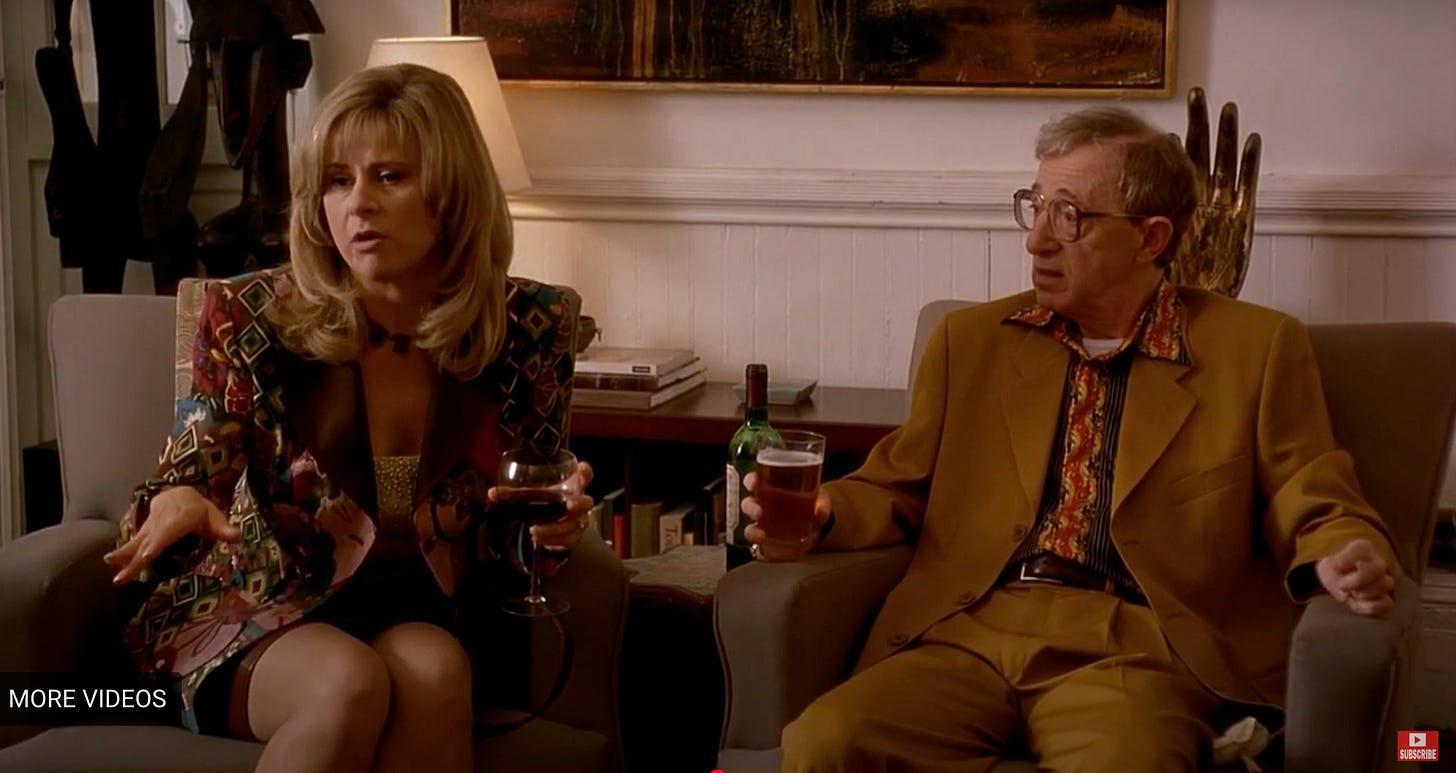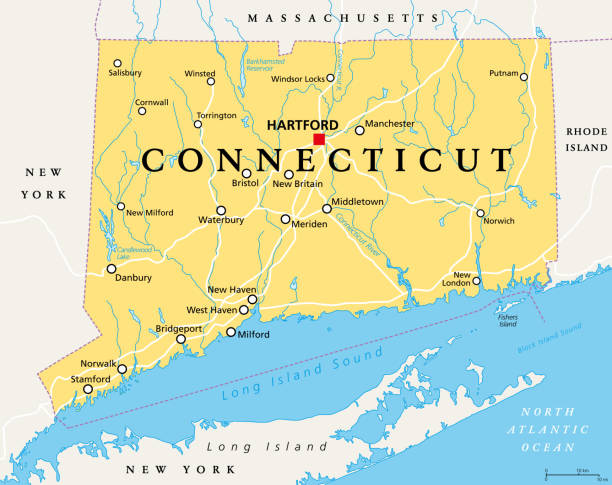Why do I want to learn to spell Connecticut?
After a year of essays exploring all the things I've never done and am never going to do, here's what it all has to do with C-o-n-n-e-c-t-i-c-u-t.
In Small Time Crooks (Woody Allen’s 30th film, released in 19981), Allen plays Ray: a con man who gets filthy rich overnight when a botched bank robbing swings in his favour. His wife Frenchy (played impeccably by Tracey Ullman, matching Allen laugh-for-laugh), needs to learn how to act like a wealthy wife, quick sharp. They hire David (Hugh Grant as a dastardly two-faced art dealer) to coach them in the airs and affairs of the New York elite.
Frenchy wants a crash course on lessons in life, so she asks David to ‘turn two slugs like us into classy items’. She wants to get a better vocabulary, but she doesn’t want to spend four years actually completing college, and Ray doesn’t want to get involved with anything that feels like ‘homework’.
As they banter back and forth, Ray makes efforts to appease his wife so she’ll leave him alone to drink his beer. Then, he has a glimmer of ambition when he realises that this may be his chance — now that he has the money and the means — to do the one thing he always wanted in his life.
With that, he spontaneously declares:
‘The one thing I would like: I would like to learn how to spell Connecticut.’
Followed by a throwaway aside of ‘don’t ask me why’, the scene moves swiftly on. David never teaches Ray to spell Connecticut. And Ray never asks again.
Which only begs the questions:
Why would anyone want to spell Connecticut?
If Ray really has always wanted to know…why hasn’t he done it already?
I always wanted to…
In the summer of 2024, I read an article that quoted this line from Allen’s comeback comedy. The writer (whom I don’t remember and can’t now find — if you know the piece, please put the link in the comments) called it the perfect amalgam of abandoned ambition and debilitating procrastination:
I would like to learn to spell Connecticut.
‘I would like to learn…’. Ray starts with an ask. It sounds like an invitation, like he’s ready to receive knowledge. Willing and available.
But then he follows with a perfunctory, simple task that could be completed in a moment. In fact, it could have been completed fifty years ago, when Ray was still in school. He could have found a dictionary and looked up Connecticut. He could have done that at any moment in his life, up to the moment he asked. He could do it still.
But he didn’t. He didn’t, he hasn’t, and — if the past is anything to go on — he probably won’t.
In making the declaration, he is nailing the coffin on his intention. He’s not gonna do it. But he’s going to spend the rest of his life saying he’d like to. By keeping it perpetually in the ‘like to’ column, he never has to move towards it, or give it up.
When we set a goal, we’re separated from it by a series of factors:
Time
Space
Effort
Intention
Time: The very nature of setting a goal puts it in the future. We don’t have it now, but we’d like to have it. At some point, you’d like to start at ‘C’ and end at ‘t’ — but at the moment, you’re not sure how to get there.
Space: It doesn’t exist in our reality: it’s not here with us. It hasn’t manifested, or we haven’t realised it. Whether it’s a house you want to own, a job you want to do, or a family you want to have, it’s not yet here with you in this space. The letter order of that four-syllable-word can’t yet be visualised in your mind.
Effort: In order to reach your goal, you’ll need to put in effort. Maybe hours of work or study; if you’re running a marathon, you’ll need physical training as well as psychological endurance. If you want to mend, create or transform a relationship, you’ll need to make an interpersonal investment. And you’ll need to walk over to the shelf, reach out for that heavy book, and open it to the ‘C’s.
Intention: You’ve gotta want it. That dictionary isn’t going to open itself.
When Ray declares his lifetime goal can be distilled to eleven letters, the only rational response is deflation. For him, but also for each of us.
As I turned the phrase over in my mind, I recalled all the times I’d declared what I wanted to the world. The wishes I’d made blowing out my birthday candles; whispering hopes as pillow talk with long-lost loves; the deep-dives in therapy, trying to get to my current nub of resistance. I remembered all the stories I told my friends, again and again, bemoaning dreams never come true, abandoned attempts, sidestepped intentions.
Tell me whatcha want, what you really really want
I realised the difference between the dreams we say we want, and what we’re willing to do to get them.
I admitted how many different ways I’d learned to say:
I always wanted to learn how to spell Connecticut.
Over the past year, here are all the things I admitted I have never done, and am never going to do:
Play a musical instrument (after attempts at learning the piano and the clarinet)
Win an Olympic gold medal
Keep all my old mementoes from my mother’s basement
Choose only one thing, and do that
Anything and everything (like Barbie)
Go back to the beginning of my relationship with my husband
Choose between conformity or contrarianism
Realise achievements as a direct result of effort made
Have a corner office in a high rise building made of glass
Live in New York, or London, or LA
And here are all the things I will never be:
A supermodel
Brat like Charlie xcx
A financial planner
A yoga influencer on Instagram
A CEO
A famous Hollywood actress
A millionnaire
A university graduate
A mother
At the end of twelve months, as I review all those ‘nevers’, I realise I have also been writing confessions. Each one, an explanation of why I never picked up the dictionary, or read to the end.
I can’t say I recommend watching it, particularly. Some laud it as Allen’s late-90s return from a slump; I found it too major key and lacking nuance. And not actually that funny, unfortunately. Ullman was great, though.



